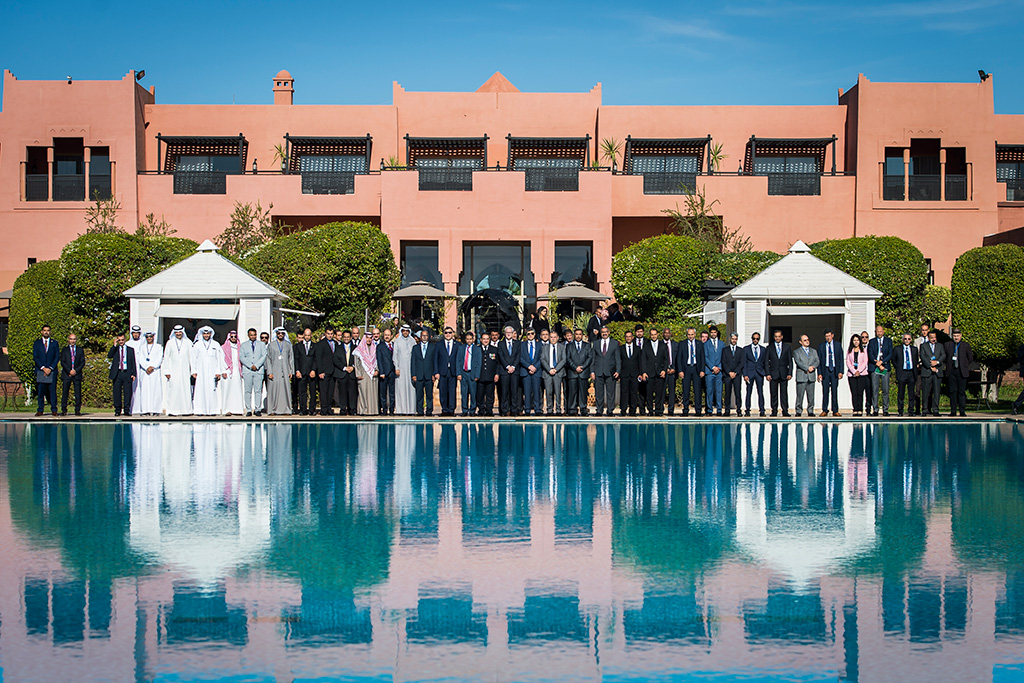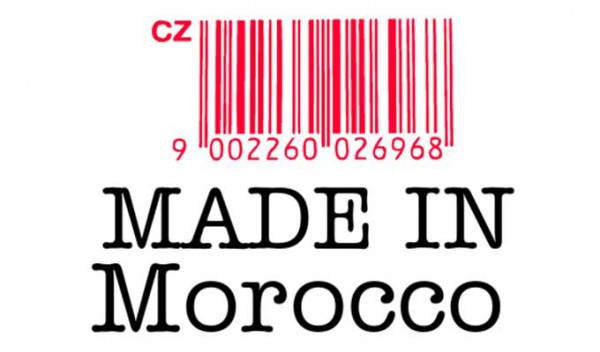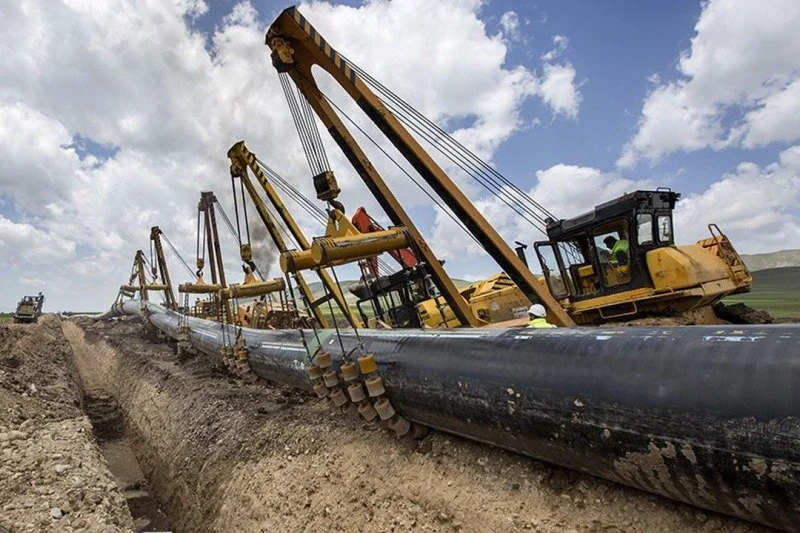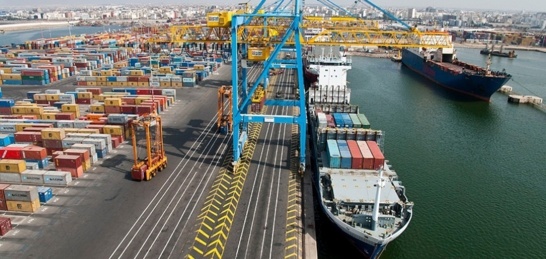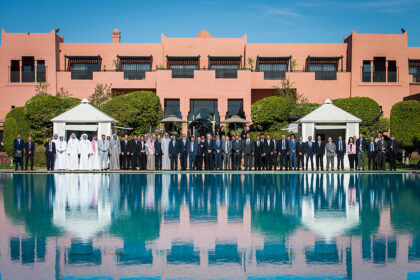 Marrakech is hosting INTERPOL’s fourth meeting for Chiefs of Police from the Middle East and North Africa, with ways of tackling organized crime and terrorism high on the agenda.
Marrakech is hosting INTERPOL’s fourth meeting for Chiefs of Police from the Middle East and North Africa, with ways of tackling organized crime and terrorism high on the agenda.
With the MENA region being one of the fastest growing regions for information exchange via INTERPOL, senior law enforcement officials are meeting to identify ways for even stronger cooperation.
Whilst terrorism remains a key issue, Chiefs of Police are also addressing the threats posed by cybercrime and organized crime, such as drug trafficking.
Directeur Central de la Police Judiciare, Mohammed Dkhissi, who is INTERPOL’s Director in Morocco, underlined in an address at the opening ceremony that the success of Morocco’s pioneering security experience testifies to the soundness of the strategy implemented in this area, both at the local level and in the context of cooperation and the exchange of expertise.
This security strategy has made of training to human rights one of its major pillars, alongside the implementation of good governance, accountability, and the supervision of police action, through a very strict code of conduct, Dkhissi said.
He also mentioned the activation of a security plan based on the unification of the efforts of the Directorate General of National Security (DGSN) and the Directorate General of Territorial Surveillance (DGST).
The Kingdom’s efforts in the field of security also focus on the scientific, technical, operational, ethical and behavioral qualification of police personnel, to establish the police as an active player, close to the reality of society and aware of the magnitude of security challenges.
Morocco’s approach, which is based on vigilance and proactivity, has enabled to protect the country against all the threats of terrorist organizations. “Morocco’s security policy in the fight against extremism, terrorism and organized crime has achieved remarkable results that set the Kingdom as a model to be followed by the countries of the region and at the international scale,” said Dkhissi.
INTERPOL Secretary General Jürgen Stock who is taking part in the meeting said the range of current and future security challenges requires continued regional and global cooperation.
“INTERPOL activities in the Middle East and North Africa continue unabated, strengthening our collective understanding of the threat landscape,” he said.
“At the same time, we are seeing results around the world because of national law enforcement’s increased collection and sharing of information across the region via INTERPOL. Each piece of policing data adds to INTERPOL’s effectiveness as a global early warning system,” he said.
The two-day meeting (Nov.25 – 26) brings together some 60 senior law enforcement officials from 17 countries, the Arab Interior Ministers Council, the Gulf Cooperation Council Police Organization (GCCPOL), and the Naif Arab University for Security Sciences.
Besides the host country Morocco, the meeting is attended by Algeria, Bahrain, Egypt, Iraq, Jordan, Kuwait, Libya, Mauritania, Oman, Palestine, Qatar, Saudi Arabia, Sudan, Tunisia, United Arab Emirates and Yemen.
